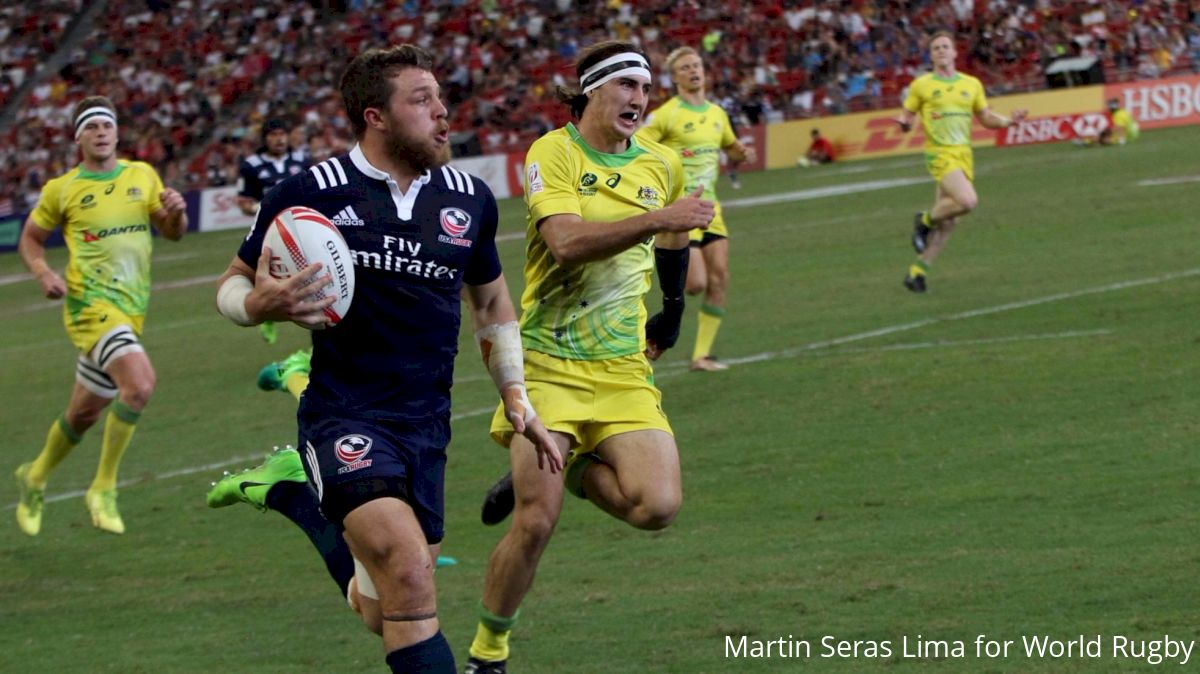Rugby Rules 101: What Does Advantage Mean?
Rugby Rules 101: What Does Advantage Mean?
Advantage is one of the most exciting parts of rugby, but it can be a little tricky to understand.

Watch any game of rugby at any level and you'll definitely hear the referee say the word "advantage" at least 10 times a game. It's an exciting part of the sport and makes for some of the most entertaining plays over the course of a game.
What does it mean though? Here's a rundown on what advantage is and how it can be used to your... advantage:
What It Means
Advantage in rugby is relatively similar to advantage in soccer and hockey, or declining a penalty in football. It occurs whenever one team commits an infraction, such as a penalty or a knock-on, and the other team still has the ball. Instead of blowing the whistle and ending the play, the referee will stick his arm out and say "advantage 'x team'", and that squad will have the opportunity to keep playing and attempting to create a scoring chance.
If the referee thinks that the team with the ball has had it long enough and nothing is developing, he or she will blow the whistle and say "no advantage gained", then take the ball back to the point of the infraction and set up either a penalty or a scrum.
However, if the ref deems that a scoring chance has been created or that enough ground has been made forward, he or she will say "advantage gained", and the infraction will then be voided and the game simply continues. Generally, penalty advantages will last longer than knock-on advantages because the opportunity for meters gained on a penalty will be much larger than from a knock, which results in a scrum at the place of the handling error.
How Long Can Advantage Last?
Advantage can really last for as long as the referee wants it to. In situations where a team is down near the goal line, it isn't uncommon to see advantages last for 10-15 phases, since every carry is realistically a scoring chance. There was famously a Six Nations game in 2017 between France and Wales that went into the 100th minute because Wales continually committed penalties on their goal line on the final play, allowing France to keep getting another crack.
How To Use Advantage
When your team has advantage, that's the most perfect time to attempt a high risk, high reward type of play. Since you're going to get the ball back no matter what, you can try something tricky or fancy to unlock the defense, like a long cutout pass, a cross field kick, a chip and chase, or a no-look pass. Many teams will also look to immediately shift the ball wide when they have advantage, because there is likely more space out there. Typically, shifting it outside means running the risk of losing territory and support, but if you have a penalty or a scrum down coming your way, there's no reason to be concerned about losing ground.
The 2019 Rugby World Cup saw a lot of teams utilize the cross-field kick to score tries when they had advantage: